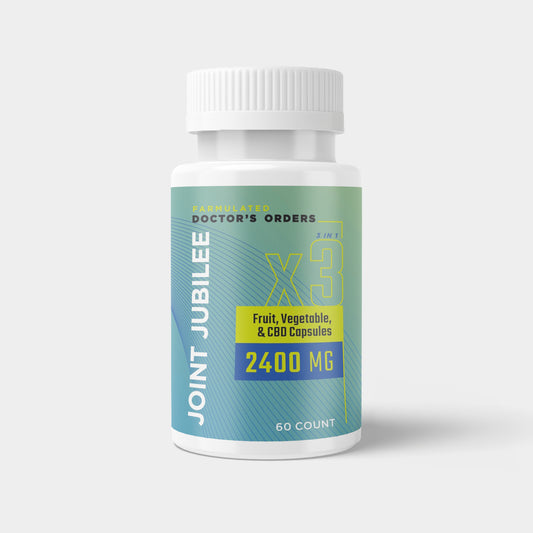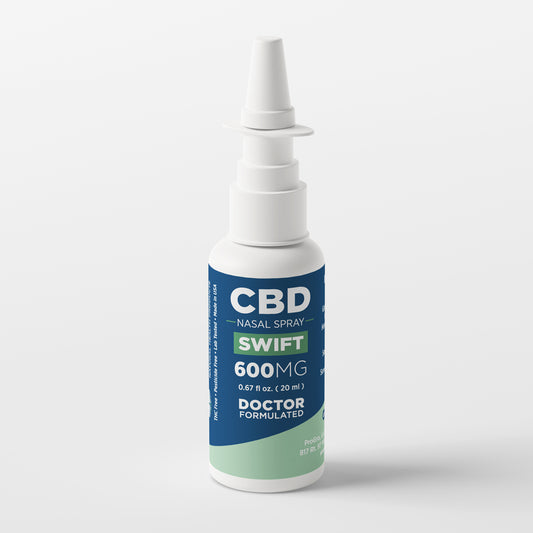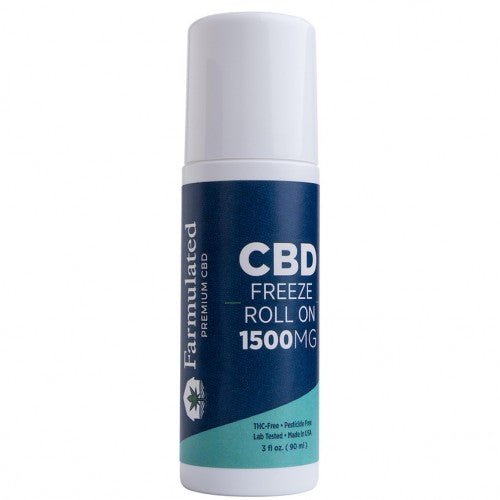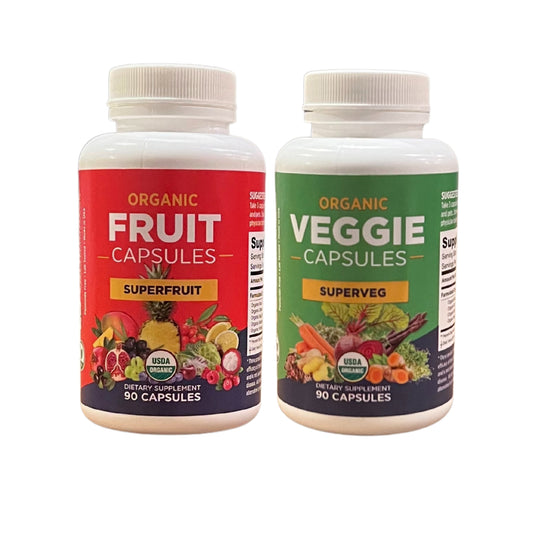Tendonitis is a common condition that affects people of all ages and lifestyles. It’s caused by inflammation in the tendons, which can be triggered by overuse or injury. The pain associated with tendonitis can be excruciating, making it difficult to carry out everyday activities. While there are several effective treatment options available for tendonitis pain relief, many people have turned to CBD as a natural alternative.
CBD has gained growing popularity in recent times due to its potential health benefits, including its ability to help reduce inflammation and relieve pain. In this blog post, we’ll explore how CBD can help alleviate tendonitis pain and what types of CBD products are best suited for this condition.
Understanding Tendonitis Pain
Tendonitis pain can be caused by a variety of factors, including overuse, injury, and certain medical conditions. When tendons become inflamed due to these factors, they swell up and become painful to touch or move. The most common symptoms of tendonitis include stiffness, weakness, and a dull ache in the affected area. Tendonitis pain can be acute or chronic, depending on the severity of the condition.
Acute tendonitis typically lasts for a few days to several weeks and is often caused by sudden trauma or overuse of a particular muscle group. Chronic tendonitis, on the other hand, can last for months or even years and is often associated with medical conditions like arthritis.
If left untreated, tendonitis can lead to chronic pain and even permanent damage to the affected tendons. It’s vital to seek treatment as soon as possible if you’re experiencing any symptoms of tendonitis.
Traditional treatment options for tendonitis pain relief include rest, ice therapy, physical therapy, and non-steroidal anti-inflammatory drugs (NSAIDs). However, many people are turning to CBD as a natural alternative due to its potential health benefits.
CBD has largely been shown to have anti-inflammatory aspects that can help to reduce inflammation in the tendons and relieve pain associated with tendonitis. Additionally, CBD interacts with your body’s endocannabinoid system (ECS), which plays an important role in regulating pain perception throughout the body. CBD products like CBD cream for tendonitis, when directly applied to the affected area, interact with ECS receptors, reducing inflammation, thereby relieving pain.
How CBD Can Help with Tendonitis Pain Relief
CBD (which is AKA cannabidiol) is a natural compound found in cannabis plants. Unlike THC (tetrahydrocannabinol), another cannabinoid that can be found in cannabis plants, CBD does not produce psychoactive effects or make you feel “high.” Instead, it interacts with your body’s endocannabinoid system (ECS) to regulate various physiological processes.
The ECS plays a vital role in regulating pain perception and inflammation throughout the body. When you consume CBD products like CBD oil or use topical CBD products like CBD cream for tendonitis directly on the affected area, it interacts with your ECS receptors to reduce inflammation and relieve pain.
Studies have shown that full-spectrum CBD (which contains all of the cannabinoids found in cannabis plants) may be more effective at reducing inflammation than broad-spectrum or isolate-based CBD products. This is because full-spectrum CBD has what’s known as an “entourage effect,” where all of the cannabinoids work together synergistically to provide maximum benefits.
Types of Topical CBD Products for Tendonitis Pain Relief
When it comes to using topical CBD products for tendonitis pain relief, there are several options available on the market today. Here are some of the most popular types of topical CBD products:
-
Best CBD Cream for Tendonitis
CBD creams are one of the most popular types of topical CBD products on the market today. They’re easy to apply directly onto the affected area and provide targeted relief from pain and inflammation.
When choosing a CBD cream for tendonitis, look for one that contains high-quality ingredients like organic hemp extract and essential oils. When searching for the best CBD for joint pain relief, it’s important to consider factors like product purity, cannabinoid spectrum, and third-party testing to ensure safety and effectiveness. Avoid creams that contain artificial fragrances or preservatives, as they can irritate sensitive skin.
-
Full Spectrum vs. Broad Spectrum vs. Isolate-Based Topical Products
As mentioned earlier, full-spectrum topical products may be more effective at reducing inflammation than broad-spectrum or isolate-based topicals due to their entourage effect.
Broad-spectrum topicals contain all of the cannabinoids found in cannabis plants except THC, while isolate-based topicals only contain pure isolated cannabidiol without any other cannabinoids.
-
Other Topical Products
Other popular types of topical products include balms, salves, lotions, and patches. All these formulations offer different benefits depending on their specific ingredients.
In addition to CBD products, there are other topical products that may offer relief and help treat tendonitis pain. These include:
-
Topical NSAIDs: Non-steroidal anti-inflammatory drugs (NSAIDs) like ibuprofen and diclofenac can be applied topically to the skin in the form of creams or gels. They work by reducing inflammation in the affected area, which can help alleviate pain.
-
Capsaicin cream: Capsaicin is a compound found in chili peppers that has been shown to have pain-relieving properties. When applied topically, capsaicin cream can help reduce pain associated with tendonitis.
-
Menthol-based creams: Menthol is a natural substance that produces a cooling sensation on the skin. When applied topically, menthol-based creams can help reduce pain and inflammation associated with tendonitis.
-
Arnica: Arnica is an herb that has been used for centuries as a natural remedy for pain and inflammation. When applied topically, arnica can help reduce swelling and stiffness associated with tendonitis.
It’s important to note that while these topical products may offer temporary relief from tendonitis pain, they do not address the underlying cause of the condition. It’s always best to seek medical advice if you’re experiencing persistent or severe symptoms of tendonitis.
In conclusion, there are several different topical products available that may offer relief for tendonitis pain.CBD products are one option due to their anti-inflammatory properties, but other options like topical NSAIDs, capsaicin cream, and menthol-based creams can also provide short-term relief. Arnica is another herbal alternative, but it’s important to remember that these options don’t treat the underlying cause of tendonitis. It’s always best to seek medical advice if you’re experiencing persistent or severe symptoms of tendonitis.
FAQs on CBD for Tendonitis
How can CBD oils be used by people dealing with tendon discomfort?
CBD oils are sometimes added to a wellness routine by people looking to support joint or tendon comfort. They can be taken orally or applied topically, depending on preference. Many users choose oils because they allow for flexible serving sizes and different methods of use.
Is full-spectrum CBD oil different from other types of CBD?
Yes. Full-spectrum CBD includes a range of plant compounds, including cannabinoids, terpenes, and flavonoids. Some people prefer it for what’s called the “entourage effect,” where the compounds work together. Broad-spectrum CBD contains multiple plant compounds but no THC, while isolate is pure CBD without additional compounds. The choice often comes down to personal preference.
Can CBD topicals be applied directly to sore muscles or tendons?
Yes. CBD topicals such as creams, balms, or salves are designed for direct application to the skin. Many people find this convenient for targeting specific areas like muscles or joints, and they often describe the experience as soothing.
Are there specific CBD products marketed for tendonitis?
Some CBD products, particularly topicals like creams and balms, are marketed as being suitable for muscle or joint discomfort. While these products are not formulated to treat medical conditions, they may be appealing to those who want a plant-based option in their wellness routine.
How does broad-spectrum CBD oil compare with CBD isolate?
Broad-spectrum CBD contains multiple hemp plant compounds except THC, which some users feel provides a more well-rounded experience. CBD isolate, on the other hand, contains only cannabidiol, making it a good option for those who want to avoid other cannabinoids entirely.
What role might CBD play for people with tendon-related soreness?
Some users explore CBD because of its potential calming or soothing effects. While experiences vary, CBD is often discussed in the context of general wellness and supporting comfort, rather than as a treatment for a specific medical condition.
How do CBD products compare with over-the-counter (OTC) options?
CBD products and OTC topicals, such as menthol gels or arnica creams, are sometimes considered side by side. OTC options are widely available and often recommended for short-term use, while CBD is chosen by some for its plant-based profile. The decision often comes down to individual preference and what feels most supportive in a wellness routine.
Are CBD topicals useful for everyday soreness or stiffness?
Many people use CBD topicals as part of their self-care routine for general soreness or stiffness after activity. Since they’re applied directly to the skin, they can be focused on a specific area, which users often find convenient and soothing.
Final Thoughts
In conclusion, CBD creams & oils have been reported by many users as being very helpful when used as part of a comprehensive plan aimed at relieving joint pains caused by conditions such as tendonitis. If you suffer from chronic pain related to tendonitis or other inflammatory conditions, CBD might be worth exploring. As always, it’s important to consult your healthcare provider before trying any new treatment regimen, and remember, to achieve optimal results from any form of medication, it’s important that you follow recommended CBD dosages strictly.





